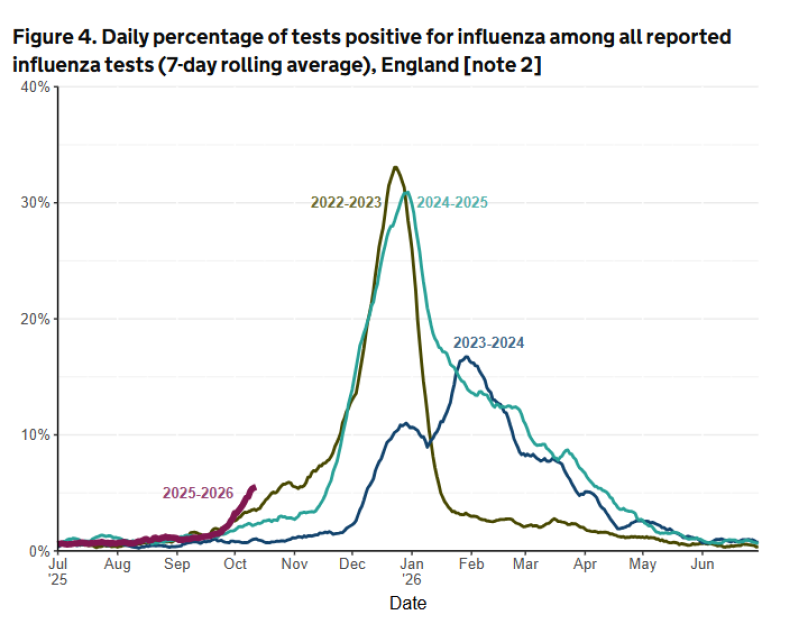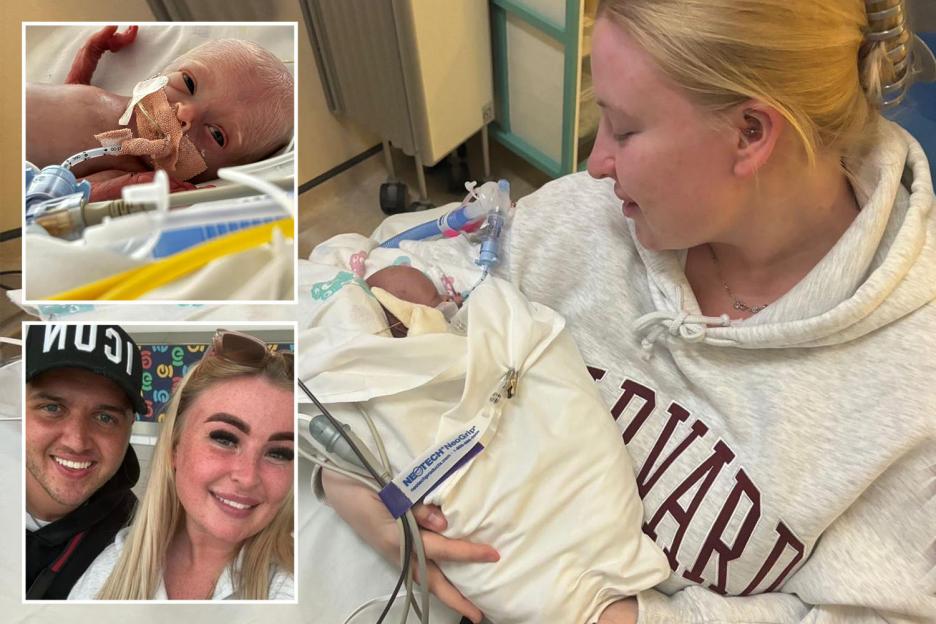TENS of thousands more people could die of flu this winter as a mutant, ‘vaccine-dodging’ strain threatens the ‘worst outbreak in a decade’, health chiefs warn.
The flu strain ripping through the UK, known as , is relatively new, meaning many people may not have .
 Experts fear many more people could die of flu this year than normalCredit: Getty
Experts fear many more people could die of flu this year than normalCredit: Getty
 Flu cases are rising faster than normal in the UK
Flu cases are rising faster than normal in the UK
It has also at least seven times over the summer, raising fears it could slip past some protection offered by current flu jabs.
“This significant mismatch means the level of protection people get from vaccines could decline faster than it usually does,” Dr Bruno Ciancio, head of the Vaccine Preventable Diseases unit at the European Centre for Disease Prevention and Control (ECDC) told The Sun.
The mutations have fuelled the early start to his year’s flu season, with cases surging more than a month earlier than usual in the UK and Europe – prompting calls for people to get as soon as possible.
“If you are eligible for vaccination, please don’t wait,” Dr Ciancio said at the ESCAIDE conference in Warsaw.
“Getting vaccinated now is one of the most effective ways to protect yourself and those around you from serious illness this winter.”
He said even those not eligible for free jabs should consider getting vaccinated “if they can afford it.”
In a “bad flu year” we can expect up to 70,000 deaths across Europe and the UK – with millions of people falling ill.
Dr Ciancio is “concerned” that if we don’t start ramping up vaccination now hospitals could be “overwhelmed” and “tens of thousands” of otherwise preventable deaths in Europe and the UK could follow.
By November 18, flu cases were already surging, according to latest data from the UK Health Security Agency (UKHSA).
Around 1 in 10 tests came back positive, rising to nearly 1 in 3 among school-age children between the ages of 5 and 14.
Early research from the public health body suggests that despite the mismatch between this flu strain and the vaccine, the level of protection is comparable to previous years, at least to begin with.
“Children who had been vaccinated were much less likely to go to the emergency department or be admitted to hospital than those who had not,” Prof John Tregoning, Professor of vaccine immunology, Imperial College London, said.
“Immunisation in the elderly also reduced the amount of severe disease, but less than in children.
“For context, the level of protection so far this year is similar to last year.
“Vaccination is reducing the risk of severe disease following influenza infection at the moment.”
The H3N2 strain also tends to cause more severe illness than other subtypes in circulation, particularly in older people.
The mutations may boost the virus’s transmissibility but it is too early to know if they make infections more severe.
In a normal flu season, the R rate – the average number of people an infected person passes the virus on to – is around 1.1 to 1.2.
This season it is thought to be 1.4, meaning every 100 people with flu are expected to infect a further 140.
Jab takes 14 days to kick in
It comes as the issued a “flu jab SOS” earlier this month, over fears that many people will get sick this .
And it follows the biggest flu season in ’s history, which is often an indication of what is to come in England and the rest of the northern hemisphere.
In the UK, flu vaccines are available for everyone aged 65 and over, under 65s who are at clinical risk, pregnant women, care home residents and carers.
Close contacts of those who are immunosuppressed, frontline social care workers, and health and social care staff as well as children are also eligible.
Elaine Clancy, Chief Nursing Officer at St George’s University Hospitals NHS Foundation Trust, said: “Last flu season was particularly nasty and we’re very concerned that this year could be even worse – we’re preparing for a spike of flu onto our wards.
“We see people dying every year from flu and sadly thousands more will likely die this year.
“I strongly recommend booking your jab now, as it takes up to 14 days to fully kick-in.”
WHEN FLU MIGHT BE SERIOUS
ASK for an urgent GP appointment or get help from NHS 111 if:
You or your child have symptoms of flu and:
- you’re worried about your baby’s or child’s symptoms
- you’re 65 or over
- you’re pregnant
- you have a long-term medical condition – for example, diabetes or a condition that affects your heart, lungs, kidneys, brain or nerves
- you have a weakened immune system – for example, because of chemotherapy or HIV
- your symptoms do not improve after seven days
You can call 111 or get help from 111 online .
Call 999 or go to A&E if you:
- get sudden chest pain
- have difficulty breathing
- start coughing up a lot of blood
Source: NHS





